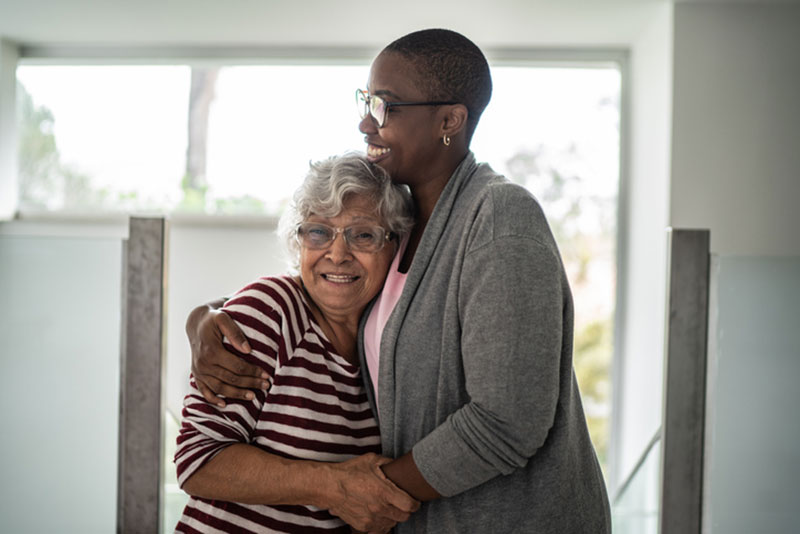
Our care experts share signs and strategies to help seniors manage anxiety.
Aging is accompanied by a set of common changes. Shifts in sleeping and eating habits, memory, and interests in certain activities are oftentimes attributed to the natural process of growing older. However, these very changes can sometimes be signs of a frequently overlooked and untreated condition in older adults: anxiety. It’s important for family members to watch for these and other signs and to know how to help seniors manage anxiety.
What Other Signs Could Point to Anxiety in Older Adults?
In addition to the red flags noted above, an older adult with anxiety may experience:
- A racing heart
- Nightmares
- Obsessive thinking
- Nausea
- The need for repetition in specific activities, like handwashing
- Excessive sweating
- Trembling
- Extreme overreactions
- And more
What Causes Anxiety in Older Adults?
There are a number of contributing factors for anxiety in older adults, including:
- Feeling as if they have lost their freedom
- Challenges with mobility
- Loss of a friend or family member
- Trauma from their past
- A chronic health condition
- Side effects from medications
- And more
What Are the Most Common Types of Anxiety?
In many instances, a doctor will diagnose a person with generalized anxiety disorder, which covers a broad array of types of anxiety. In addition, there are three specific forms of anxiety that may be diagnosed:
- Social anxiety disorder: Social anxiety disorder occurs when the person experiences extreme nervousness or self-consciousness in social situations. This can be debilitating, leading the individual to avoid socializing altogether, something which is harmful both for their physical and emotional wellbeing.
- Obsessive-compulsive disorder: Also known as OCD, this condition causes the individual to go through specific rituals, often repeatedly, to manage compulsions or unwanted thoughts. These behaviors, such as washing hands over and over again or checking to make sure the door is locked multiple times, provide a sense of control in an otherwise uncontrollable situation.
- Phobias: Phobias are fears of a very specific object or situation. The person may, for instance, feel especially fearful of dental or doctor visits, insects, being alone, thunderstorms, the dark, etc.
How Can You Help Seniors Manage Anxiety?
The good news is there are successful treatment options available for people with anxiety, ranging from counseling to medications to changes in lifestyle. First, schedule an appointment with the physician for a diagnosis and recommendations. Additionally, you can:
- Speak with the individual regularly, allowing them to share their thoughts and feelings. Merely listening without judgment will help instill a feeling of calm and self-worth in your loved one.
- Encourage better sleeping habits if needed. A recent research study conducted by the University of California, Berkeley showed that insufficient sleep can elevate anxiety by as much as 30%.
- Recommend avoiding nicotine, alcohol, caffeine, along with other stimulants, all of which can increase anxiety.
How Home Care Can Help
Home With You Senior Care can help seniors manage anxiety in a number of ways. Our caregivers are wonderful companions for conversations, calming activities, and exercise. We can also prepare healthy meals, provide medication reminders, offer transportation to medical or therapy appointments, and much more.
Our award-winning in-home care services are available in Columbia, Stevenson, Sykesville, and nearby areas. Contact us any time at 410-756-0959 to learn more about how we can help someone you love.
